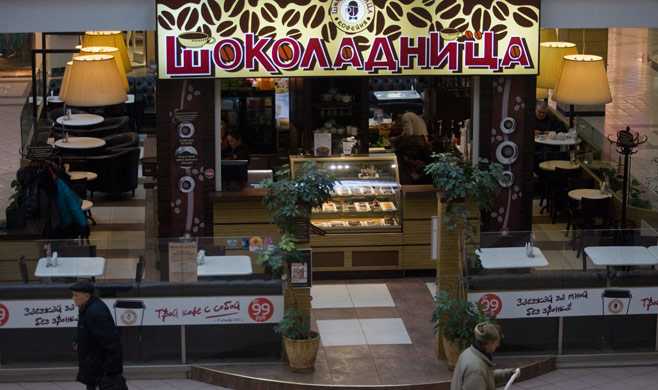Ken Research announced its latest publication on, “Hot Coffee Consumption Volume and Growth Forecast to 2021-East Europe”, offer insights on the changing trends and key issues within the East European Hot Coffee market.
The analysis has been done across eighteen individual countries in East Europe: Belarus, Bosnia, Bulgaria, Croatia, Czech Republic, Estonia, Hungary, Latvia, Lithuania, Macedonia, Poland, Romania, Russia, Serbia, Slovak Republic, Slovenia, Turkey, and Ukraine.
Brief Overview of the Hot Coffee Market in East Europe
Further segmentation of the hot drink beverages category under the non-alcoholic drinks, provides for one of the most trendy and popular category among consumers i.e. Hot Coffee.
Over the time, the global hot coffee market has shown robust growth in sales on account of changing consumer tastes and the coffee becoming more and more affordable to every class in the society.
The same scenario has been prevalent in East Europe as well.
Eastern Europe experienced the initiation of prominent developments in Hot Coffee market in 1990s. The Big political changes in Eastern Europe along with the opening up of trade barriers, resulting into a free market, led to a fast-expanding coffee market due to a surge in coffee consumption.
The increased consumption attracted Eastern Europe coffee producers helped by the fact that in 1990s the quality of coffee in Eastern Europe was inferior and heavy in Robustas and hence the consumers demanded higher quality Eastern European coffee.
For e.g. after the opening of the market, Tchibo immediately entered the East European coffee market. Despite unfamiliar market conditions, Tchibo soon established a powerful market position.
Looking at the current landscape, the Hot Coffee market in the East Europe, is being greatly influenced by two key factors, firstly, changing consumer preferences on account of changing consumer tastes and health awareness and secondly, per unit price of coffee.
The change in the categorisation of coffee from luxury to essential good was basically on account of its increased affordability to different segments of society.
Hence price fluctuations are important. Also, the market is marked by fierce competition among various international and domestic coffee producers leading to price-war.
To survive this competition, producers focus on increasing their volume through increasing consumer base by applying strategic marketing techniques.
Regarding the distribution channel, supermarkets and grocery retailers play a major role making coffee accessible to every segment of the society.
Key Factors Driving Growth in East European Hot Coffee Market
Over the years, the market for Hot Coffee market has been posting positive growth on account of various factors.
While one set of factors have played its role in increasing hot coffee consumption, the other set of factors have encouraged domestic and international coffee producers to expand their business activities in East Europe in a strategic way to reap maximum benefits. Some of the major growth driving factors for the Hot Coffee market include:
- One major factor driving growth of the hot coffee market has been the changing consumer preferences on account of changing consumer tastes and the increasing trend of drinking coffee that has been increasingly as a picture of their social status. Thus the tradition along with the recent trend of drinking coffee has increased its sales volume.
- The busy lifestyles of consumers have made them more inclined towards ready-to-drink sources of energy and concentration. Coffee serves this purpose and hence is in demand.
- Increasing population along with rising urbanisation has expanded the consumer base for the hot coffee. Also with increasing disposable income and health awareness, the consumers are ready to trade up to expensive premium products.
- Cafe Culture in malls and other public places have led to their broad and easy availability and hence also increasing their popularity leading to even more consumer demands.
- Coffee producers’ business strategies have also contributed in direct and indirect ways to the expansion of the east European hot coffee market. Directly by expanding their product base through innovation and launch of new products as well as through targeted marketing, while indirect effect is through price competition among producers leading to lower prices and hence increasing demand for coffee.
- regulations and policies have also contributed to the growth of the hot coffee market. Opening of trade barriers have attracted international brands as well as best quality products from their domestic portfolio, hence expanding the market in East Europe.
East European Hot Coffee Market Prospects
Over the next five years (2016-2021), the market outlook for the hot coffee market in East Europe shows a promising picture on account of increased demand for coffee driven by various demand-boosting factors especially increasing health awareness among consumers and the per unit price of coffee expected to play a major role in shaping the future outcomes of the market.
The forecasted volume performance of hot coffee in East Europe is much brighter than its performance in the review period (2010-2015).
The volume growth in various East European countries is expected to exhibit CAGR ranging between 2-4%. Healthy consumption trend may lead to higher volume growth of fresh coffee than instant coffee.
Value sales growth is expected to post CAGR less than its value in the review period basically due to competitive pricing and discounts.
The growth of the hot coffee market may also face serious challenges in coming future such as aging of coffee trees, lack of government initiatives, and adverse impact of climate change, price fluctuations and rising production cost, which is expected to limit the growth of hot coffee market if not tackled on time.















